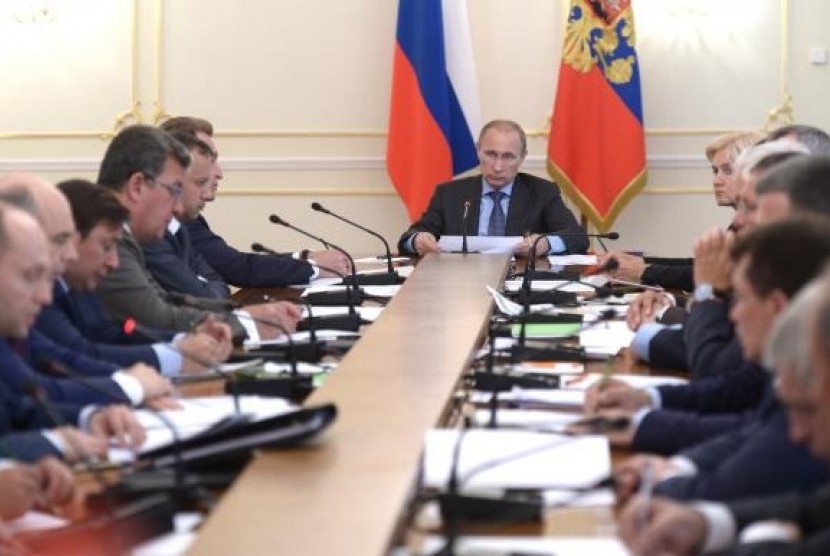REPUBLIKA.CO.ID, BRUSSELS - The European Union formally adopted sanctions on Thursday curbing arms sales to Russia and cutting off financing for targeted banks over Moscow's support for rebels in Ukraine.
Russia has denounced the measures, agreed by the 28 EU member states on Tuesday, as "destructive and short-sighted", while fighting has intensified in eastern Ukraine between Kiev forces and the pro-Russian separatists.
EU officials said the sanctions aim to inflict maximum pain on Russia and minimum pain on the EU. "We will for sure have an effect and a very substantial and concrete effect on Russia," one EU official said, speaking on condition of anonymity.
The toughest measures aim to prevent Russian banks from raising money on Western capital markets, while others limit defense sales and the export of hi-tech equipment for the oil sector. The sanctions law will be published later in the day in the Official Journal of the European Union and takes effect from Friday, Aug 1.
Marking a fundamental shift in how Europe deals with Russia, the sanctions will mean EU nationals and companies can no longer buy or sell new bonds, equity or other financial instruments with a maturity of more than 90 days issued by major state-owned Russian banks or those acting on their behalf.
Russia's largest banks with state ownership of more than 50 percent include Sberbank, VTB Russian Agriculture Bank (Rosselkhozbank) and VEB. In addition, there is a ban on the import and export of arms from Russia and authorization will be required for member states that want to export energy-related equipment.
Export licenses will be denied if products are destined for deep water oil exploration and production, Arctic oil exploration or production and shale oil projects in Russia.
Europe, which has deep trade links with Russia, was far more reluctant to act than the United States over Moscow's annexation of Crimea from Ukraine in March and its support for the rebels.
However, the mood shifted radically after the downing over eastern Ukraine of a civilian flight from the Netherlands to Malaysia earlier this month. Western countries say a Russian-supplied missile fired from rebel-held territory caused the disaster. Moscow blames the Ukrainian military for the crash, in which 298 people were killed.


